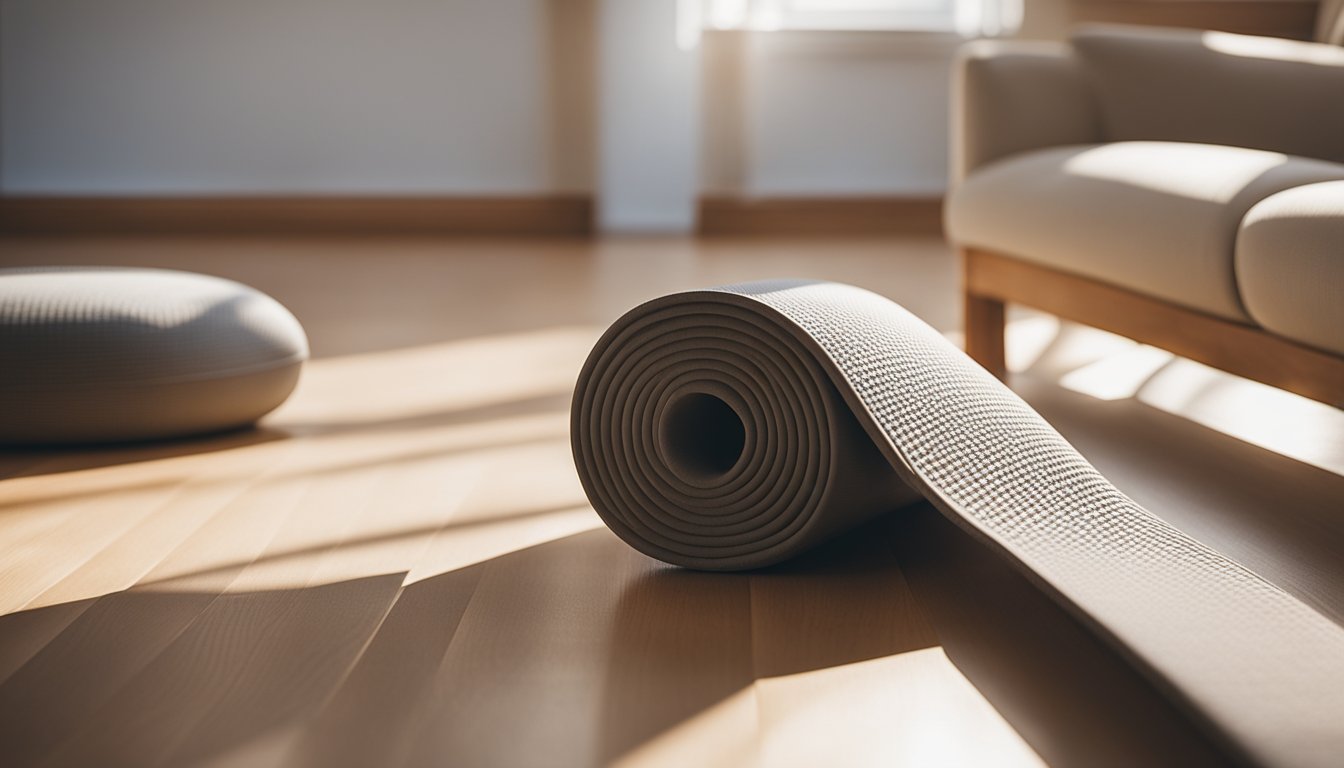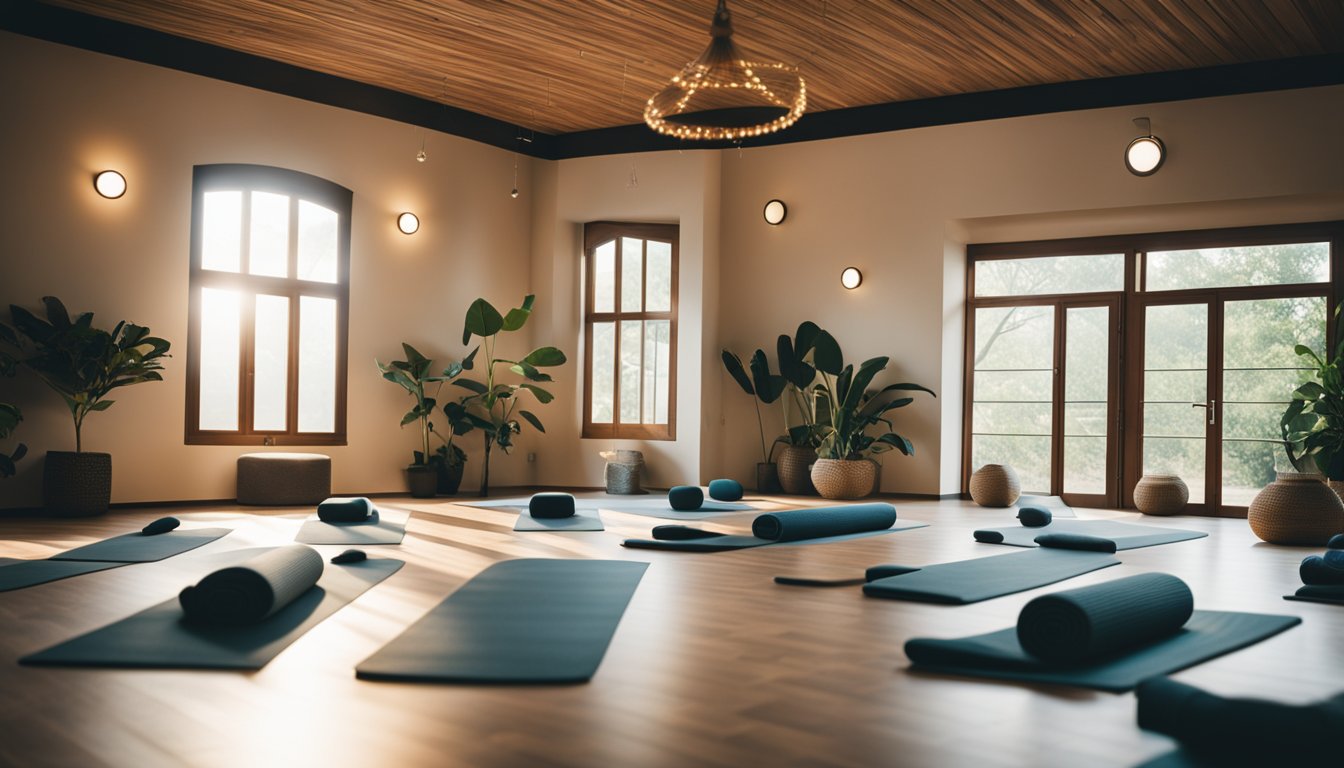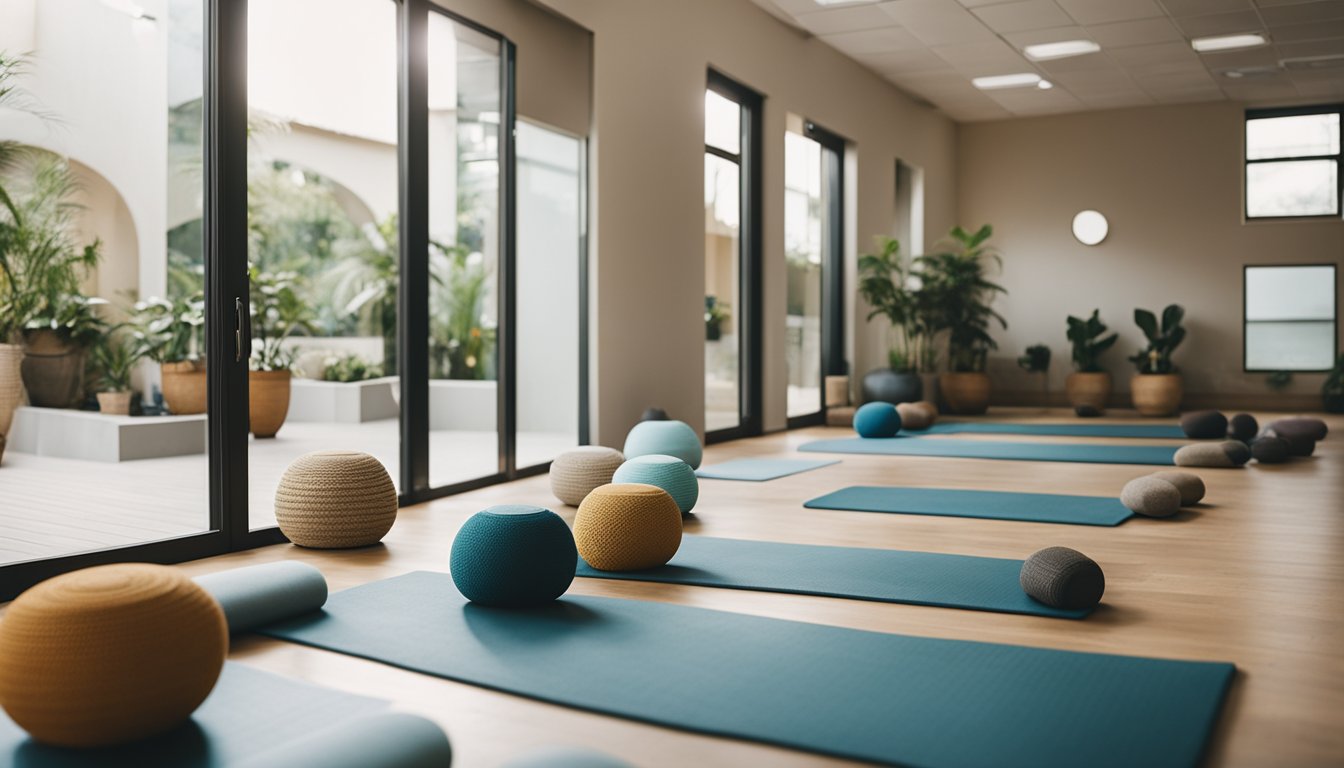Late updated: 19 Jan 2025 08:01
Written by: Ella Thompson
Yoga Practices To Support Addiction Recovery: Enhancing Healing and Wellbeing
Embarking on the journey of addiction recovery is challenging, and discovering supportive practices is vital. Yoga offers a profound way to aid this transformative process. By integrating yoga into addiction recovery, individuals find a holistic path that addresses not just the physical but also mental and spiritual aspects of healing. The practice extends beyond mere physical exercise, offering a means of self-discovery and balance.

Various yoga techniques, including mindfulness, breathwork, and postures, can foster an environment conducive to healing. Tailoring these practices to individual needs ensures a personalised recovery journey, making yoga an essential ally in overcoming addiction. Its holistic approach empowers the body’s natural healing abilities and fosters resilience against relapse.
Ultimately, yoga presents a multifaceted approach to recovery, grounded in self-awareness and holistic health. As we explore its potential, we unravel new pathways to a deeply personal and lasting recovery experience.
Key Takeaways
- Yoga supports addiction recovery through holistic healing.
- Personalised yoga practices enhance the recovery process.
- Integrating yoga addresses mind, body, and spiritual needs.
Understanding Addiction and the Role of Yoga

Addiction recovery is an intricate process involving numerous factors such as physical, psychological, and emotional support. Yoga, by integrating physical postures, mindfulness, and breathwork, provides a holistic approach that aids individuals in addressing the diverse aspects of addiction.
The Science of Addiction and Recovery
Addiction is a chronic disorder characterised by compulsive substance use despite harmful consequences. It alters brain function, particularly in areas related to reward, motivation, and memory. The release of dopamine plays a crucial role, reinforcing addictive behaviours and creating dependency over time.
Recovery involves rewiring brain pathways, which requires sustained effort. Techniques that focus on mindfulness and stress reduction can be beneficial, as they help in managing withdrawal symptoms and reducing cravings. Yoga supports this process by promoting a heightened awareness of the mind-body connection, which can be pivotal for maintaining sobriety and overall well-being.
Fundamentals of Yoga for Recovery
Yoga offers a set of tools specially tailored for addiction recovery, focusing on improving mental clarity and physical strength. By practising consistent mindfulness and physical postures, individuals learn to cope better with cravings and stress, thereby reducing the likelihood of relapse.
Key components include controlled breathing techniques and meditation, which foster relaxation and help in rebalancing the nervous system. Strength-building postures improve overall physical health, which is often compromised during addiction. These practices contribute to a sense of inner peace and self-awareness, essential for breaking the cycle of addictive behaviours.
Creating a Supportive Environment
A supportive environment is vital for successful addiction recovery. Creating such a space involves incorporating elements that encourage positive change and healing. This includes access to supportive networks, professional guidance, and resources that foster recovery.
Regular yoga classes can form part of this environment, providing both community support and structure. By participating in group sessions, individuals feel a sense of belonging and shared purpose, which can be incredibly motivating. Moreover, safe spaces for yoga enable individuals to practise mindfulness and awareness without judgment, bolstering emotional resilience and aiding in long-term recovery.
Holistic Recovery Through Yoga
Our exploration of holistic recovery through yoga highlights tailoring practices to individual needs, the integration of mindfulness and meditation, and the vitality of routine and community connection. By focusing on these areas, we can foster resilience and emotional healing, paving the way for sustained recovery.
Tailoring Yoga Practices to Support Recovery
Customising yoga practices is essential in supporting addiction recovery. Each individual's journey and challenges are unique, and so should their yoga practice be.
We should start with gentle asana (postures) to enhance physical health and introduce pranayama (breathing techniques) for emotional regulation. These practices are designed to build resilience and reduce anxiety, promoting a state of relaxation and calm.
Furthermore, focusing on emotional healing through yoga helps individuals address underlying emotional issues linked to addiction. Developing self-awareness and discipline is crucial, as it leads us to recognise personal triggers and replace unhealthy coping mechanisms with constructive strategies.
Integrating Mindfulness and Meditation
Mindfulness and meditation are indispensable components of holistic recovery. These practices improve mental health by cultivating an awareness of the present moment, enhancing emotional balance and reducing the grip of craving triggers.
Through meditation, we learn to anchor ourselves in the now, fostering increased self-awareness and emotional regulation. Mindful breathing practices strengthen our ability to manage stress and anxiety, reinforcing a sense of calm and clarity.
Engaging in regular meditation helps us build a firmer foundation for recovery. By practising mindfulness in everyday activities, we can navigate challenges with patience and resilience.
The Importance of Routine and Community
A consistent routine is a powerful tool in addiction recovery, offering a sense of stability and structure. Establishing daily yoga practice integrates discipline and consistency into our lives, aiding both physical and mental health.
Participating in community-based yoga sessions enhances the process by creating connections with others who share similar experiences. This community support fosters an empowering environment where individuals feel understood and encouraged.
Through shared experiences, we can develop stronger resilience and gain insights that bolster our recovery journey. A supportive community provides accountability and camaraderie, making the path to holistic healing more sustainable and rewarding.
Frequently Asked Questions

Yoga can be a valuable tool in the journey to overcome addiction. By incorporating specific poses and routines, individuals can find support and enhancement in both mental and physical recovery processes.
Which yoga poses can benefit individuals recovering from addiction?
Several poses offer benefits to those in recovery. Child’s Pose promotes relaxation and grounding. Tree Pose aids in building balance and focus. Warrior Pose can enhance strength and confidence. These poses, among others, can be helpful in calming the mind and building resilience.
In what ways does yoga contribute to the recovery process?
Yoga contributes by lowering stress levels and promoting mental clarity. It enhances physical well-being and supports emotional regulation, which can be crucial in resisting cravings. The practice fosters mindfulness, encouraging individuals to stay present and manage triggers more effectively.
Can you outline seven recommendations for individuals in addiction recovery?
- Start with simple poses.
- Focus on breathing techniques.
- Set a regular schedule for practice.
- Combine yoga with meditation.
- Attend classes or follow online videos.
- Maintain a journal to track progress.
- Listen to your body and adjust practices as needed.
What does the yoga programme for 12-step recovery involve?
This programme integrates the principles of traditional 12-step recovery with yoga practices. It involves physical postures, breathing exercises, and meditation. Participants explore the spiritual aspects of both yoga and recovery, enhancing self-awareness and personal growth.
How frequently should one practise yoga to aid in addiction recovery?
Consistency is key. We recommend practising three to five times a week. Sessions can vary from short 15-minute practices to longer sessions. Regularity helps in establishing new habits and sustaining recovery efforts.
Are there specific types of yoga that are more effective for supporting recovery?
Kundalini Yoga and Hatha Yoga are often highlighted for their benefits in recovery. Kundalini focuses on energy release through breathwork and movement. Hatha offers a gentle approach suitable for beginners, focusing on basic poses and relaxation techniques. Each style can be tailored to fit individual recovery needs.
